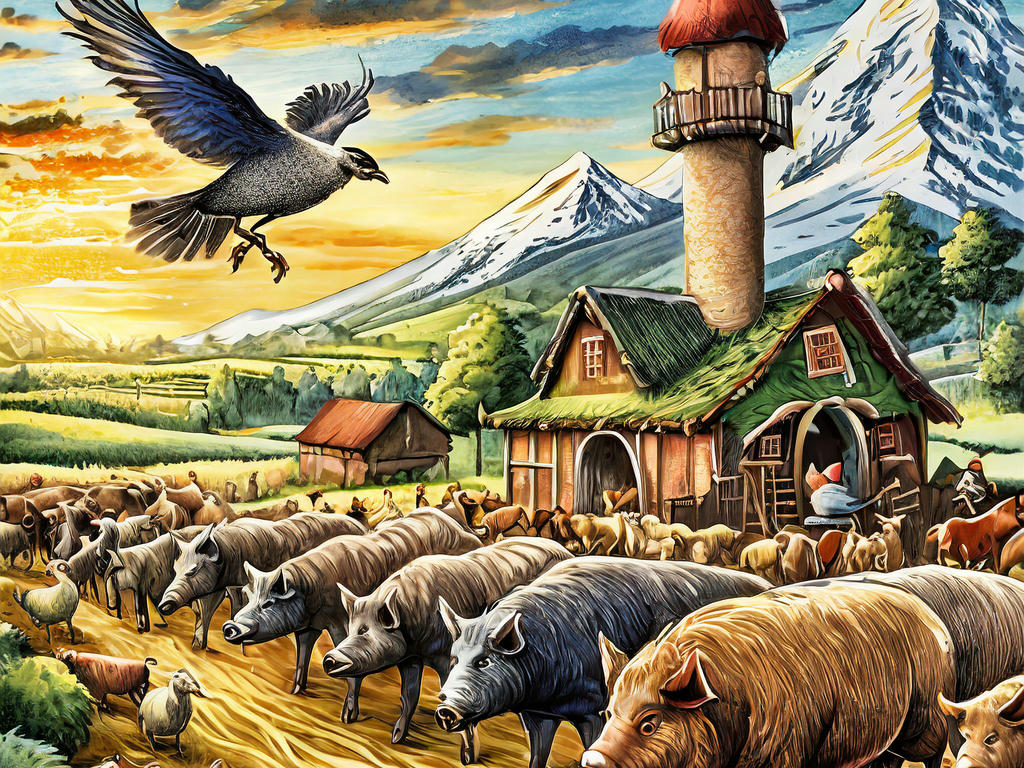
After completing 1984, a friend suggested I read this book. As I ponder my recent exploration of George Orwell's "Animal Farm," I am engrossed by the depth of its messages and the profound wisdom nestled in its narrative. Crafted as an allegory, this timeless tale provides a poignant critique of authority, corruption, and the complexities of governance.
From the outset, Orwell draws readers into the world of Manor Farm, where the animals rise against their human oppressors under the rallying cry of "All animals are equal." Led by the pigs, notably the clever and manipulative Napoleon and the idealistic Snowball, the animals establish their society based on the principles of Animalism. At first, their revolution seems to promise a utopian existence, free from the tyranny of human exploitation.
However, as the story unfolds, we witness the gradual erosion of the animals' ideals as the pigs consolidate their power and become indistinguishable from the humans they once opposed. Through cunning manipulation and propaganda, Napoleon and his cohorts subvert the principles of Animalism, betraying the very creatures they claim to represent.
Orwell masterfully uses animal characters to represent different aspects of human nature and political ideologies. The pigs, with their intelligence and ability to organize, symbolize the ruling elite, while the other animals represent various segments of society, from the loyal but naive working class to the cynical skeptics who question authority.
One of the most chilling aspects of "Animal Farm" is its portrayal of how power can corrupt even the noblest of intentions. As Napoleon consolidates his control, he employs fear, manipulation, and violence to maintain his grip on power, ultimately betraying the revolutionary ideals upon which Animal Farm was founded.
Through its allegorical narrative, "Animal Farm" serves as a stark warning about the dangers of totalitarianism and the perversion of revolutionary ideals. Orwell's keen observations about human nature and politics resonate just as strongly today as they did when the novel was first published.
As I close the book, I am left with a profound sense of unease and reflection. "Animal Farm" is not just a story about animals; it is a powerful allegory that holds a mirror to our society, prompting us to question the nature of power, authority, and the pursuit of utopia. It is a timeless masterpiece that reminds us of the importance of vigilance in safeguarding our freedoms and ideals.
If you have any comments, suggestions or remarks of any sort, you can ping me on Twitter @aaqaishtyaq!